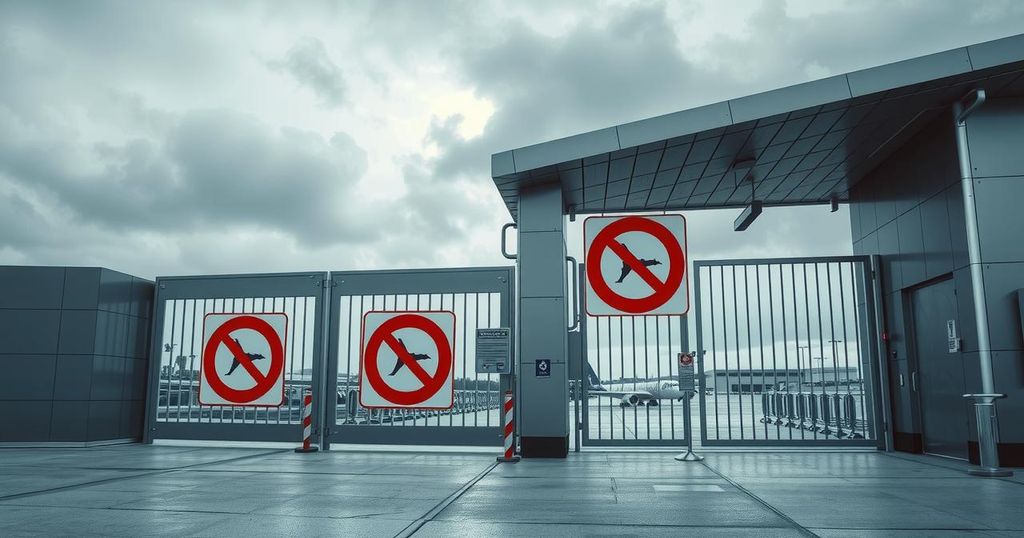Trump Signs Travel Ban on 12 Countries Including Haiti Following Attack

U.S. President Donald Trump announced a travel ban on 12 countries, including Haiti, citing national security concerns linked to a recent attack in Colorado. The ban targets various nations, emphasizing heightened scrutiny on immigration to protect Americans. The implications of this policy change could significantly impact diplomatic relations and humanitarian efforts.
In a significant move, U.S. President Donald Trump announced a new travel ban on Wednesday, which affects 12 nations, including Haiti. The decision follows a troubling attack on a Jewish protest in Boulder, Colorado, which authorities attribute to a man believed to be in the U.S. without legal permission. In a video message, Trump stated, “The recent terror attack in Boulder, Colorado has underscored the extreme dangers posed to our country by the entry of foreign nationals who are not properly vetted.”
The White House made it clear that this ban aims to safeguard Americans from threats posed by foreign individuals. The countries listed in the ban are Afghanistan, Burma, Chad, Republic of the Congo, Equatorial Guinea, Eritrea, Haiti, Iran, Libya, Somalia, Sudan, and Yemen. This expanded ban reflects a growing concern over national security and immigration policies.
Trump’s administration highlighted the necessity for stricter vetting processes for those entering the United States. With this new directive, several nations are now under closer scrutiny as the government works to prevent any potential security breaches. Critics, however, argue that these measures may unfairly impact innocent individuals seeking refuge in the U.S.
In related news, the US dollar traded at $160.34 on the same day, citing a slight increase of one cent, as reported by Jamaica’s Bank of Jamaica. The economic implications of the travel ban remain to be seen, as businesses factor in potential impacts on tourism and international relations. The announcement has stirred conversations about the balance between national security and humanitarian access.
Meanwhile, various local events continue to unfold in Jamaica, from healthcare initiatives by JACDEN Group aiming to improve access to service, to ongoing investigations into significant local murders. This news cycle reflects the complex interplay of local and international issues that continue to shape the socio-economic landscape.
Overall, the travel ban reflects a significant shift in U.S. immigration policy under the Trump administration, raising questions of legality and ethics, while also resonating with current national security fears. As the reactions from affected nations and advocacy groups continue to develop, it’s clear that the ramifications of this ban will be felt beyond U.S. borders.
In summary, President Trump’s recent travel ban targeting 12 nations, including Haiti, signifies a marked intensification of his administration’s stance on immigration and national security. The implications of this decision will likely be widespread, affecting everything from diplomatic ties to the economy, while also stirring much debate about its fairness and effectiveness.
President Trump’s travel ban on 12 countries, including Haiti, marks a notable shift in U.S. immigration policy focused on national security. While the move aims to mitigate risks posed by undocumented foreign nationals, it raises concerns regarding humanitarian access and fairness. The effects of the ban will be closely watched, both domestically and internationally, as countries respond to this directive.
Original Source: www.jamaicaobserver.com







